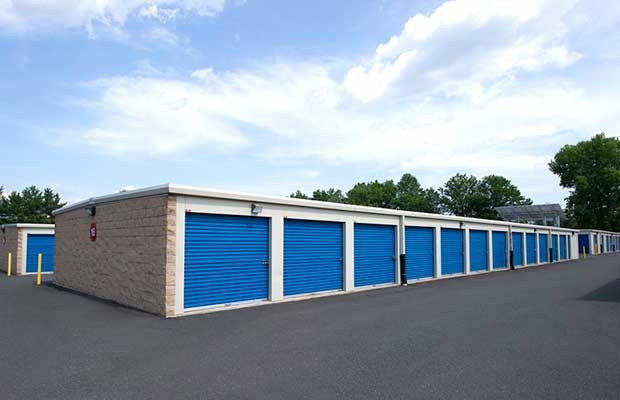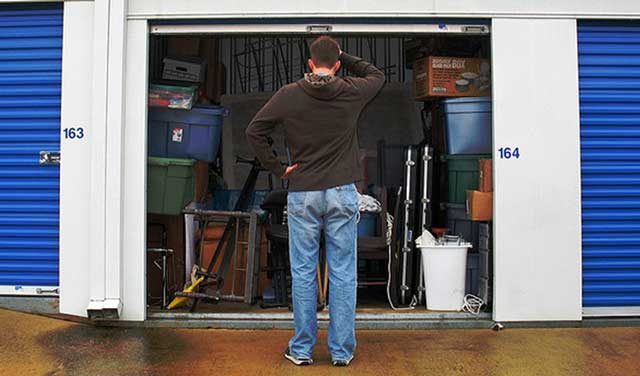 Many of you have thought about where you should store your prepping supplies. As you accumulate more food, gear and tools, you may find yourself getting creative with the space you have in your home. In the beginning, my main focus was food and the logical place was to simply put more food on the shelves. That was fine to a point, but if you have enough food for a year, the shelves in your kitchen won’t likely hold that many groceries. At some point you may want to consider alternate storage options.
Many of you have thought about where you should store your prepping supplies. As you accumulate more food, gear and tools, you may find yourself getting creative with the space you have in your home. In the beginning, my main focus was food and the logical place was to simply put more food on the shelves. That was fine to a point, but if you have enough food for a year, the shelves in your kitchen won’t likely hold that many groceries. At some point you may want to consider alternate storage options.
There are a lot of articles on prepping blogs dealing with where to store your supplies and once our shelves were full, I modified a room in our house to make a pantry. Now, the pantry is full so we have gone to storing some items in closets and now under beds. It is pretty sad when you starting thinking about where you are going to hide your next purchase before you click that “order” button on the website, but it is a fact of life for many of us. I covet a basement like nobody’s business and dream of rack after rack of shelved, stored supplies and food. That isn’t going to happen any time soon, but I have considered renting a self-storage unit. Could a great survival cache option that doesn’t require you digging a hole in the middle of the night, be as easy as renting a box down the road? Is Self-Storage Survival a good option for some preppers?
What are the advantages of storing your prepping supplies in a self-storage unit?
A self-storage unit would seem to be the perfect idea for people who need a little extra space and who aren’t opposed to spending some extra money each month. Self-storage units could easily allow you to store extra items that could come in handy during a SHTF event. This can help you in two ways.
First, even a small 5’ x 5’ self-storage unit could store an amazing amount of supplies and they run around $25 a month. Stacked floor to ceiling you could have enough food to feed an army for a month with that much space, if you used it effectively. This could allow you to move a large portion of your preps off-site freeing up room at home. You could use the newly empty space in your home for other preps, or simply enjoy not being so crowded anymore.
The other major advantage of keeping some of your prepping supplies in a self-storage unit is you don’t have to worry about having your eggs all in one basket. As it stands right now, if our home burned down, all of our prepping supplies would go up in smoke. Having an alternate location would allow you to salvage some of your supplies in a worst case scenario. What if your home was overrun during a collapse and you were forced out? You could use the storage unit cache as your backup and if you kept supplies in this alternate location, you could have the benefit of that fall back plan to keep you alive as opposed to being homeless with no resources.
One of our readers is a truck driver who frequently travels hundreds of miles from home (hey Larry!) and in a conversation on another post it was suggested that he could store supplies in some town along his route. If SHTF and he was half-way home, a stored motorcycle with gear or even a mountain bike with supplies could make his long journey home more successful. There are as many options as there are preppers out there with needs.
It makes sense to not only consider what you are putting in self-storage, but how you will need to access it later. In a SHTF event, you may only have minutes to get your gear and go.
What should you consider before leasing a self-storage unit?
A self-storage unit isn’t for everyone though and even if you think this might be a good idea for you, there are some things I would look at before I threw my money down and started stacking boxes of ammo in there.
Bugs and varmints – What are you storing in your self-storage unit and how are you storing it? Any unit that allows a lot of bugs, like cockroaches or small varmints into where you are keeping your survival supplies is a waste of time. Planning on storing a lot of freeze-dried food? It might make sense to use roach and rat traps liberally in your storage units and check them every month or so.
Flooding potential – Is your self-storage unit in a potential flood plain? Before renting, it might be worth a few minutes of your time to check that out. You can quickly search for your storage unit property’s address on FEMA’s Flood Map Service Center. It wouldn’t make any sense to stick a lot of gear in an area prone to flooding.
Structural integrity of the storage unit – Before renting a unit, go out and inspect the unit to see how well they look. Does the door rattle around? Are the doors rusting at the bottom? Are their gaps in between the floors and walls where rodents could enter or critters from another storage unit? Granted, you can only do so much, but very old storage units might have problems that newer units do not.
Temperature Extremes – The most common storage units allow access from outside. There are many newer units now that are climate controlled, but you may have a harder time accessing these in a grid-down scenario. If your unit is simply a metal box in a parking lot, you will have to assume that whatever you store inside is going to be exposed to temperature extremes of heat and cold.
What are some important access considerations of self-storage?
Having your prepping supplies in a self-storage unit is great, but if you can’t get to what you stored there or your gear is stolen you have wasted a lot of effort.
Distance – If you are considering using a self-storage unit to augment your home supplies, I would recommend choosing a unit as close to your home as possible. Having your cache within walking distance would be preferable, although your location might make that more difficult. I have a storage unit about one mile away from my house as the crow flies. If something were to happen, I could be there in minutes even if I had to walk.
Gates/Fences – Almost all storage units have a gate that you can’t get through without some form of access like a keypad. Other storage units only have hours they are open and if the grid goes down, you might not be able to get into the gate. I would plan on the possibility of having to scale the fence in a true grid-down scenario. Actually, I would cut a hole for access into the fence with my trusty bolt-cutters if it got that bad.
Location of unit to exterior fence – Speaking of having to cut the fence, it may be that in a SHTF event, there is already looting going on and your self-storage unit is a target. It may also be that the owners are locking the doors and not letting anyone in. Choosing a unit that is somewhat hidden from the main office could buy you some time if you had to get in and get your stuff unannounced. You would ideally pick a unit in the middle of the complex, but not too far from a fence location you could access in extreme situations. The layout of the complex and rental unit availability would greatly influence what you could do here. I wouldn’t have a unit on the front or the back. The front is visible to the office most likely and the back is where looters would break in first I think.
Loading Order – What you load into your self-storage unit will dictate in some respects how quickly you can access your gear. If you have 10 boxes of gear all stacked neatly, you should ensure that your most valuable gear is where you can get to it first. Some recommend stacking boxes labeled “Baby Clothes” or “Tax Receipts” in the front of the unit to deter robbers. I guess I can see how this would work, but if you plan to have a mountain of crap to get through before you get your important gear, that could slow you down. I think if you are trying to deter robbers, that might slow someone down, but not stop them.
What prepping supplies should you store in a storage unit?
So what supplies are good candidates for storing in a self-storage unit? Depending on where you live and the unit, the possibilities are almost limitless. I wouldn’t store any fuel there and that is likely illegal, but would I store a shotgun? I can see storing a shotgun and a couple hundred rounds in a self-storage unit.
Anything that is not perishable would make good candidates. Do you have 10,000 rolls of toilet paper? How about the spare parts for your Bug Out Vehicles? Freeze dried food in plastic containers will last a while, but with extremes in heat, their life will be significantly shortened. What about extra ammo? How about your prepping books?
I think one good item would be back up Bug Out Bags for the whole family. Granted you would need to leave the food out, but many supplies could stay in your self-storage unit staged for a time when you needed to break away. Camping items like tents, sleeping bags and first aid kits for your group or family could store nicely and free up your room in the hall closet. You could store water in a storage unit, but where I live it is pretty easily obtained and I wouldn’t have to worry about it freezing and busting the container in the winter. This just happened to my stainless steel SIGG water bottle that I had stored in my truck as part of my Get Home Bag. It froze and cracked down the entire length, which required me to clean my GHB, but that is another post.
Does a self-storage unit make sense for your prepping supplies? What do you think?
If you found this article useful, please Vote for The Prepper Journal as a top prepper web site.
Copyright Information This information has been made available by The Prepper Journal. Content on this site (unless the work of a third-party) may be shared freely in digital form, in part or whole, for non-commercial use with a link back to this site crediting the author. All links in articles must remain intact as originally posted in order to be republished. If you would like to be notified of new articles, contests and Prepper news, please sign up for our daily newsletter, follow us on Twitter, or Like Us on Facebook.




